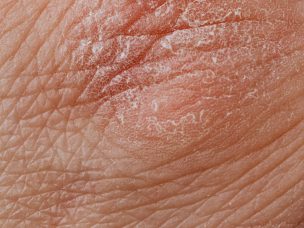Dermatology
Trends in Biologics for Chronic Urticaria: A Comprehensive Survey Analysis
Insights were gathered from a worldwide survey conducted among allergists/immunologists, revealing prescribing patterns, challenges, and effectiveness of omalizumab in treating chronic spontaneous urticaria. The study highlights the need for novel therapies and the importance of understanding global prescription trends. Omalizumab, an FDA-approved biologic for chronic spontaneous urticaria, is widely prescribed but faces global challenges in...
Advancing Chronic Spontaneous Urticaria Treatment: Insights from Recent Clinical Trials
A recent systematic review has uncovered disparities in clinical trial participant demographics and outcome reporting for H1-antihistamine-refractory chronic spontaneous urticaria. This analysis reveals a need for more diverse representation and standardized outcome measures in clinical trials for this condition. The review included 23 randomized clinical trials involving 2480 participants, highlighting a global increase in trials...
Epidemiological and Clinical Characteristics of Patients With Chronic Spontaneous Urticaria
A cross-sectional study of chronic spontaneous urticaria found that adult patients have a greater incidence of autoantibodies and metabolic syndromes, whereas atopy and autoimmune disorders have a greater incidence in pediatric patients. Chronic spontaneous urticaria (CSU) is characterized by urticaria lasting for 6 weeks or longer, usually occurring in adults aged 20–40. CSU is associated...
Comparing the Long-Term Effectiveness of Infliximab and Adalimumab for Psoriasis
Based on Kaplan–Meier analysis, the survival time for infliximab is comparatively longer than that for adalimumab; however, there are no significant differences between the two drugs based on retention rate, with their efficacy diminishing over time. Psoriasis can be described as a chronic immune-mediated disorder that requires lifelong treatment. A drug’s survival and retention rates...
Laser Therapy, Microneedling, and Chemical Peels for Skin of Color
As the aesthetics industry continues to grow, clinicians must educate themselves regarding appropriate treatments and protocols for patients with skin of color to prevent adverse reactions. There is a lack of information for Fitzpatrick skin types IV–VI, and increasing knowledge and skills is imperative for safe and effective treatments. With exponential growth in the aesthetics...
Secukinumab for Pediatric Psoriasis Treatment
Secukinumab, a fully human monoclonal antibody that targets IL-17A, is a promising treatment option in pediatric patients aged 6 years and above with moderate to severe plaque psoriasis. Psoriasis is a chronic and inflammatory skin disease that affects 1% to 5% of the global population. It is caused by T-cell activity and genetic and epigenetic...
Phototherapy for Skin Diseases, Cancer, and Allergies
Phototherapy is a promising treatment option for various skin conditions, but further research is needed to explore its full potential and safety. Non-invasive phototherapy using LED technology is becoming popular for medical and aesthetic dermatological conditions. Studies have shown that these treatments can promote wound healing and reduce inflammation. Recent studies using blue light have...
What Are the Most Common Skin Conditions Affecting African Americans?
Medical conditions impact everyone differently. Genetics, biology, and many other factors all come together to determine how a body will deal with a condition and, as a result, how serious the condition will be. Because of this, skin conditions are found at different incidence rates in different groups of people. This means the skin conditions...
Diet-Induced Inflammation Not Linked to Psoriasis
Dietary inflammatory index not linked to psoriasis in participants with different population settings Diet-induced inflammation seems not to be associated with psoriasis, according to a study published online Jan. 26 in the Journal of Dermatology. Nouzhou Liu, from Sichuan University in Chengdu, China, and colleagues examined the association between the dietary inflammatory index (DII) and incident...
More Medical News














